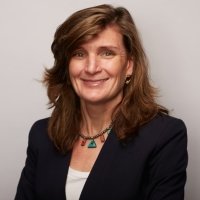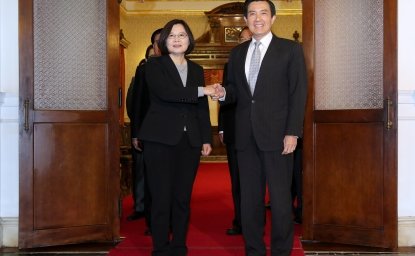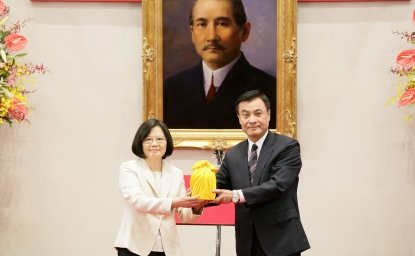Tsai Ing-wen Becomes Taiwan’s First Female President
Women in Public Service Project Director, Gwen Young, discusses the significance of Tsai Ing-wen becoming Taiwan’s first female president.
Women in Public Service Project Director, Gwen Young, discusses the significance of Tsai Ing-wen becoming Taiwan’s first female president.
Women in Public Service Project Director, Gwen Young, discusses the significance of Tsai Ing-wen becoming Taiwan’s first female president.
Guest
Gwen K. Young is an international development professional who now serves as Director of the Women in Public Service Project and the Global Women’s Leadership Initiative at the Wilson Center. An alumna of Smith College, Harvard, and the University of California-Davis Martin Luther King Jr. School of Law, Ms. Young has pursued a career in humanitarian relief, international development, and human rights. Her career has encompassed a comprehensive array of international organizations including the Bill & Melinda Gates Foundation, Medecins Sans Frontieres, International Rescue Committee, and the Harvard Institute for International Development. Ms. Young spent over ten years working with various nongovernmental organizations in strife-filled countries throughout Africa. As an attorney, Ms. Young has worked as a professional advocate for women and human rights in corporate law settings, with the ICTY and the Kroc Institute for Peace and Justice at the University of San Diego. She also provided humanitarian law and advocacy training and developed guidelines to deal with sexual and gender based violence and exploitation in conflict ridden zones. As a public policy professional, Ms. Young has advocated for and published on the role girls and women play in political, social and economic development. She has trained women in advocacy skills, how to build a network, and management skills. Ms. Young has also worked “on the ground” with private sector and public service actors on issues of women’s entrepreneurship including tools to ensure access to finance.
Photo Credit: Flickr User David Reid ShareAlike 2.0


The Global Women’s Leadership Initiative has hosted the Women in Public Service Project at the Wilson Center since June, 2012. The Women in Public Service Project will accelerate global progress towards women’s equal participation in policy and political leadership to create more dynamic and inclusive institutions that leverage the full potential of the world’s population to change the way global solutions are forged. Read more



